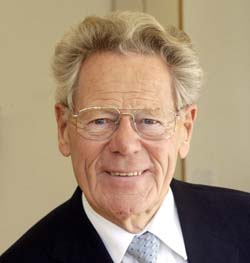Pope Francis wants to hear from you – whether you are Catholic, former Catholic, a Christian or non-Christian.
Just fill out the signature information at the bottom. Thank you!
|
January 30, 2016 Dear Pope Francis, We are Catholics who, like you, are committed to a Church that is empowered by the joy of the Gospel. This joy comes from the Spirit that calls each of us to participate more fully in God’s work on earth. In your February meeting, you are now considering the question of decentralization. Would you not agree that it is insufficient for this process to reach only to the level of bishops’ conferences worldwide? No decentralization is possible without dialogue at the diocesan level with the full engagement of the People of God. CCRI imagines representatives of each parish elected by the people populating this diocesan level dialogue. Respecting various cultures, how this dialogue is constructed should be a local decision. We believe this accords with your vision of a Synodal Church, where all the baptized participate in our common journey toward union with a loving God. We hear your call for the faithful to make some noise at their pastors’ doors, but as you know this is not an easy task. Diocesan synods were recommended at the Vatican Council 50 years ago but only a small percentage have been established, and none with those in attendance being elected by the people. As much as you want the bishops to enter into dialogues with their people, it simply is not going to happen without a mandate from the Vatican time bound with the result being reported directly to the Pope. We support your description of an upside down pyramid and urge you to create a structure that gives all of the baptized, not only an opportunity to voice their opinion, but a deliberative voice in the governance of our Church. For our part in facilitating the development for such dialogue, we are supporting gatherings at the local level, where people come together in prayer to share from their hearts, and to listen to one another without judgment. We are hopeful that what emerges will be an open dialogue with bishops, pastors, and the People of God – perhaps reviving the concept of a National Pastoral Council In this process, we must keep in mind the countless faithful who have turned away from the Church, especially the younger generation. Without finding a means of attracting them back into the fold, the Church will inevitably wither and die. Having said this, we realize that Synodality requires training if authentic dialogue is to occur. The Synod’s recent sessions on the family have discussed issues that have long been of concern to Catholics, but public airing of different views is new to most local churches. Far too many bishops, fearing to initiate dialogue as openly as you did in the Synod, will be inclined to overpower the voices of the people. And far too many Catholics, having been conditioned to sit in the pew and obey the priests’ directives, will be reticent to speak up for the good of their Church. The bishops at the Synod on the Family voiced different opinions, and were encouraged to do so. But the bishops have a certain commonality in their training and position that enabled collegial dialogue. Typical Catholics in a local church will require some training and practice in order to enable a similar level of dialogue that allows for differences of opinions to be openly shared. Consequently, while we are strongly in favor of decentralization in the Church, we believe that the long term goal is best served in a threefold step:
You have skillfully brought the Church to this crossroads. Some have said that the recent session of the Synod on the Family was about doctrine, but you have instead emphasized mercy. Mercy can serve as a bridge from doctrine to the reign of God – a powerful medicine for the wounded because it brings the willing heart along a different path to a different place. It is a place not of compliance with the law but of joy in becoming a follower of Jesus. We hope for your success in engaging the bishops in this enterprise. As a network of people from more than 60 countries around the world, we stand with you and are ready to do our part in encouraging all the baptized to begin to assume responsibility for speaking up for the good of our Church. This issue is so critical to all of us who support the renewal of our Church that we would appreciate your response to this letter. You are in our prayers, and we wish you success in your deliberations. Yours in Christ,
For the Strategy Team CC: Advisory Council members |
{loadformmaker 17}


